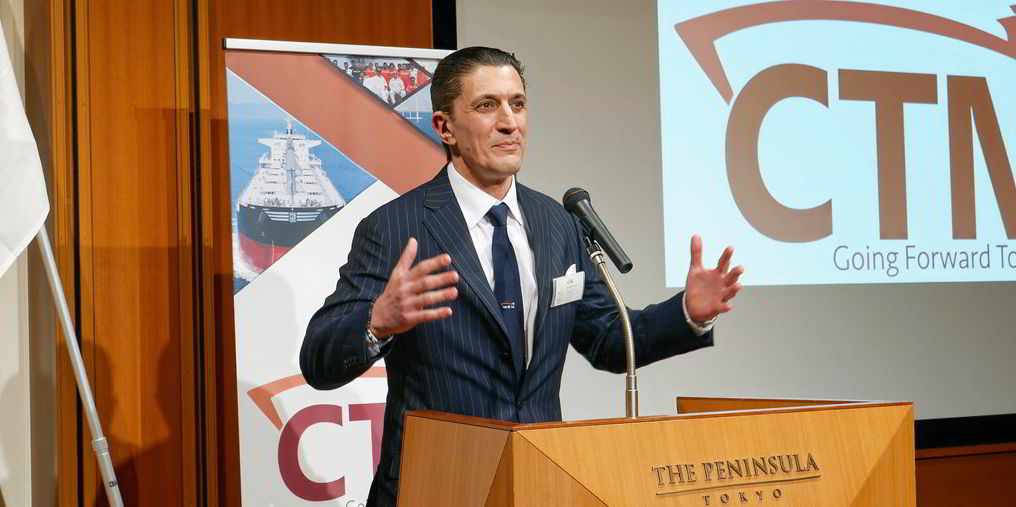The seasonally weaker capesize market and a smaller fleet weighed on shipowner GoodBulk’s first-quarter results, but the shipowner has still managed to pay out over $1 per share in distributions.
The capesize owner, which has its shares registered on Oslo’s over-the-counter market, recorded a net profit of $700,000, equating to $0.03 in earnings per share for the first three months of 2023.
This compares with $3.9m in profit during the first quarter of 2022 for GoodBulk, which is the public arm of Monaco-based C Transport Maritime.
GoodBulk will pay out a dividend of $1.25 per share for the period, just over half of what it distributed for the previous quarter.
Its fleet of capesizes earned an average gross time-charter equivalent rate of $9,260 per day during the first quarter and have been 100% exposed to the spot market for the past 12 months.
The Baltic Capesize Index averaged $9,144 per day during the quarter ending 31 March, which means the GoodBulk fleet outperformed the index by 4%.
During the first quarter of 2021, when the freight market was much stronger, GoodBulk’s capesizes earned an average TCE rate of $16,887 per day.
Capesize spot rates during the first quarter were low — but not so low by historic standards, according to GoodBulk’s CEO.
“Dry bulk earnings have been mostly below the five-year average, because rates during the pandemic were very high, but we are above 2016-2020 (pre-pandemic) average,” John Michael Radziwill said.
This year to date, capesize spot rates have been 26% below where they were during the same period in 2022 on average.
Average supramax rates this year have been a huge 59% lower this year so far, compared to the first four months of 2022. Panamax rates have averaged 49% lower.
“We expect a small demand increase this year but also fleet growth is very low,” Radziwill said.
“We will get spikes but the market overall should stay lower than the last two years. We could be surprised on the upside though if there is hot summer/[the Ukraine-Russia] grain deal renews.”
Radziwill highlighted the fact that China’s imports of major bulks have smashed new records since mid-February.
Iron ore and coal imports into China totalled 131m tonnes in April, 20% above April last year, he said, citing official figures on Tuesday.
This year to date, China's imports of iron ore and coal total 527m tonnes, up by 88m tonnes year on year. Some 67m tonnes of this total is coal, including volumes transported by land from Mongolia and Russia.
The main risks to capesize freight rates this year centre on uncertainty surrounding the strength of China’s economic recovery and its real-estate sector, GoodBulk said in its first-quarter report.
Meanwhile, commodity exports continue to be hampered by continuing geopolitical tensions, mainly Russia’s invasion of Ukraine, the firm added.
Freight rates could also be impacted this year by the “heightened risk of recession following aggressive interest rate rises in US and Europe and contagion from the banking crisis in the US,” the company said.
Asset plays
GoodBulk has sold 12 capesizes and one panamax over the past year. The sales have almost halved ship ownership days to 1,100 in the first quarter of this year, compared to 2,070 in the first three months of 2022.
It sold four capesizes during the first quarter, which GoodBulk said the sales have generated an annual internal rate of return (IRR) of around 18% on average per vessel during their time with the company, given that they were acquired in 2016 and 2017 during what the company called a “historically low” period for asset values.
Firmer freight markets and inflation have helped push up asset prices this year.
Radziwill observed that the value of a five-year-old capesize has risen by almost $12m since early December. Ten-year-old capesizes have risen by $5m in value over the same period.
GoodBulk currently controls a fleet of nine capesizes with an average age of 12.6 years, which trade in the Capesize Chartering Ltd pool.
The shipowner has paid total cumulative dividends of $487m or $16.59 per share since its inception in 2016. The company said this has fully repaid the original founders of the company in cash plus a 66% return.
Radziwill told TradeWinds in April that GoodBulk could diversify away from bulk carriers and into other vessel sectors in the future.
The only vessel type not under consideration would be cruise ships, he said.




